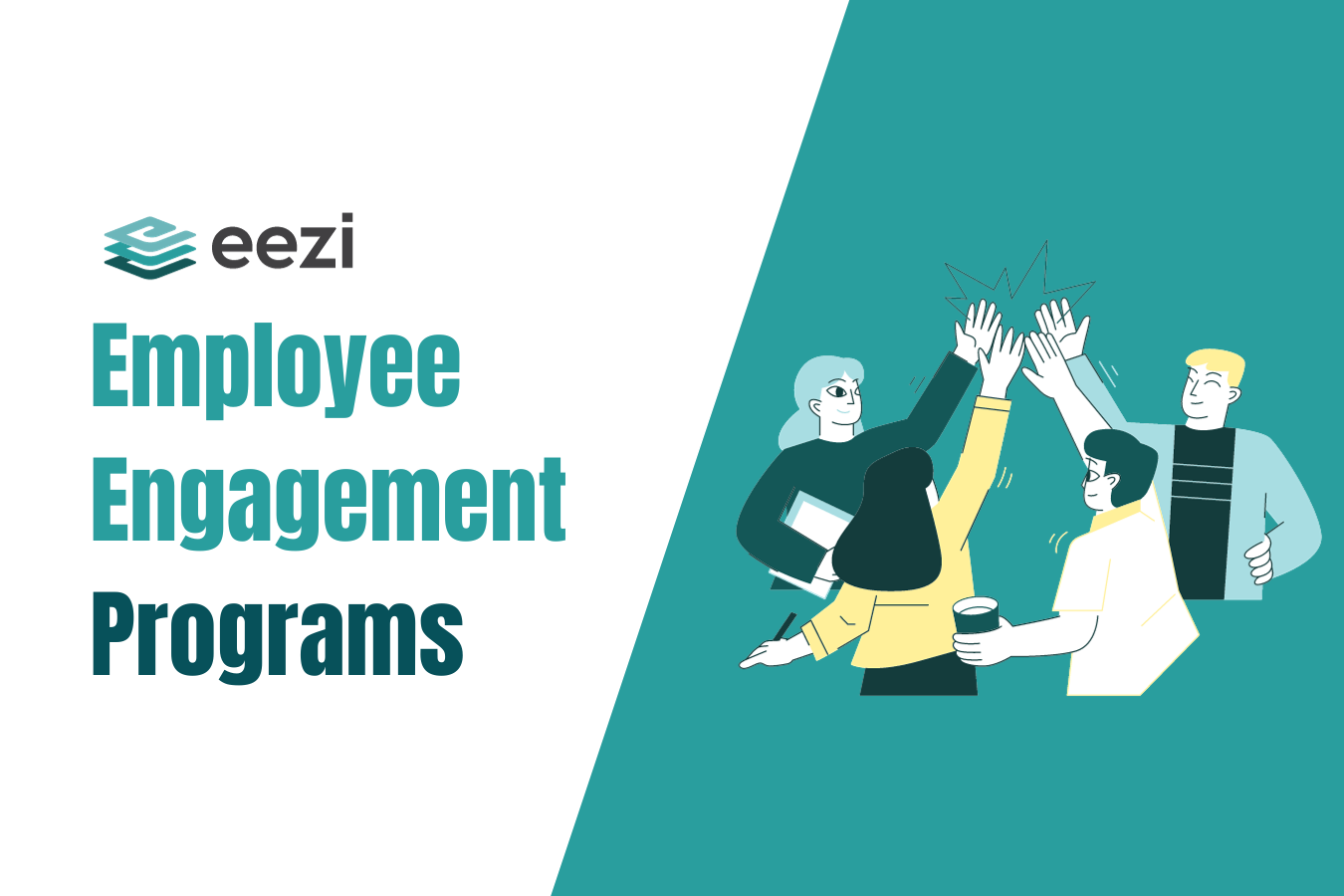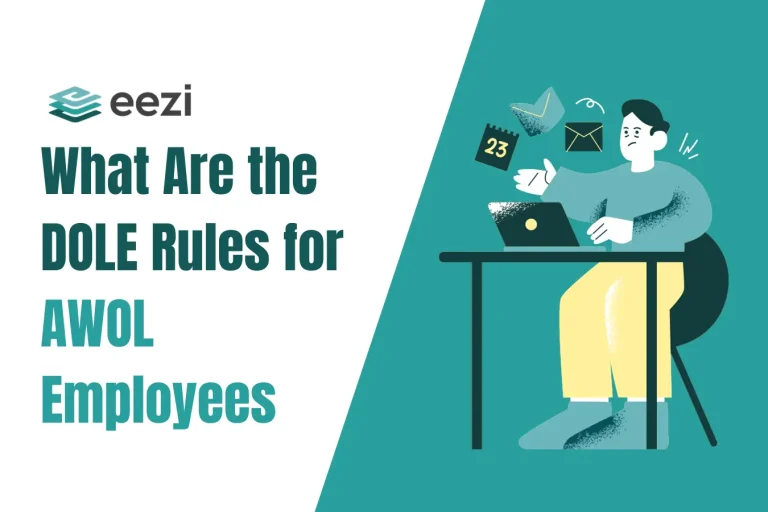What are the best examples of employee engagement programs, and how do they improve morale within the company?

Have you ever wondered why certain businesses seem to have highly engaged workers willing to go above and beyond while others have trouble keeping their employees engaged?
Employee engagement is the complex yet simple answer. The significance of employee engagement extends well beyond the individual employee and impacts all parties within a company, such as supervisors, co-workers, and clients.
Hence, any successful company must prioritize employee engagement since it significantly impacts employee retention, output, and general performance.
Here, we will go over the importance of having an employee engagement program and how it may support businesses in achieving their goals.
What is employee engagement and its importance?
Employee engagement describes the extent to which your staff are driven and invested in your business’s success. It is their cognitive and emotional dedication to their work, their coworkers, and the company. Moreover, these initiatives play a vital role in enhancing employee satisfaction within an organization.
Employees engaged in their work have a strong feeling of purpose and belonging, are enthusiastic about what they do, and feel appreciated and acknowledged for it.
Moreover, when employees feel valued, they are more inclined to go above and beyond, accept more duties, and collaborate with their peers, which improves employee retention.
Disengaged workers, on the other hand, lack excitement, are unmotivated, and show little regard for their jobs or the organization. Even though they might show up for work, they could not be committed to their employment, resulting in low performance, low productivity, and greater turnover rates.
Employee engagement is, therefore, essential for several reasons. First, companies with high levels of employee engagement programs are more effective and productive, improving business results.
Second, they are more likely to uphold and deliver first-rate client connections and service, which will enhance the income and reputation of your business. However, depending on the industry, employee engagement strategy can vary. It should start with an employee engagement survey.
Why does employee engagement matter at a company level?
No matter the industry, employee engagement makes a big difference. By investing in employee development, you can help improve employee engagement and drive better outcomes for your business. Besides, highly engaged employees are more productive, offer excellent customer service, improve employee retention rates, and have a good financial impact.
Conversely, low employee engagement initiatives can result in subpar work, high employee turnover, and higher expenses.
Nevertheless, you may develop a culture of innovation, improve the working environment, and accomplish your business objectives by prioritizing employee engagement initiatives.
Here are some industries that grow more quickly because of employee engagement:
Retail industry
Maintaining client fulfillment and loyalty, boosting sales, and boosting profitability depends on employee engagement in the retail industry. Excellent customer service is more likely to be delivered by engaged workers, which raises customer satisfaction and increases revenue.
Furthermore, motivated staff members are more likely to stick with their company, which lowers turnover costs and boosts overall stability in the company.
Employee engagement can give a business a competitive edge in the fiercely competitive retail sector. It increases the likelihood of productivity, innovation, and the generation of new concepts that can propel company expansion and success.
Financial industry
The financial services industry necessitates high levels of employee engagement due to its fast-paced and competitive nature.
Customers are more likely to be satisfied and committed when an employee is motivated to go above and beyond for them. More substantial profits and revenue for the financial institution follow from this.
Manufacturing industry
Manufacturing industries benefit from having engaged employees because they are more likely to be productive and produce higher-quality work.
Employee engagement is crucial to achieving production targets and preserving product quality. Higher-quality work and better productivity result from engaged employees’ propensity to take ownership of their work and feel proud of their accomplishments.
Furthermore, establishing a safe workplace in the manufacturing sector depends heavily on employee participation. Workplace accidents and injuries are less likely to occur when employees actively adhere to safety regulations and procedures.
What is a good example of employee engagement?

The degree to which your most significant workers stay with you depends on several factors that influence employee engagement. This can be strengthened by putting the following engagement efforts into practice:
Workplace culture
The influence your company’s culture has on staff is one of the best examples of employee engagement. There is a good chance that your staff will be engaged if you provide a friendly, inclusive, courteous, and polite work environment where everyone gets along well as a team.
Good onboarding process
When the onboarding process is not done well, new hires enter the company confused and disorganized. They won’t know how they are supposed to get started, contribute to the success of the organization, and won’t have clear objectives or goals established for them.
So, to keep new employees engaged, create an environment where they feel welcome. Also, no one wants to stay in work with little to no development opportunities. Create a great place to work. Select the employee engagement tools that are best for your company.
Proactive leadership
Leadership establishes the standard for employee life in an organization. Employees want to be motivated and inspired by their leaders, and they also want to feel confident in them. They also want their leaders to understand how important their employees are.
According to an old saying, people don’t leave employment; they leave bad managers. When you are not a good leader, it affects how your team members feel about the company.
Hence, good communication is key to making employees feel engaged and heard. Make sure to take action to show they’re being listened to for any work-related concerns. It is a way to show that you are concerned with them.
Another effective way you can do this is to get to know your team members. A key factor in inspiring workers to give their all is getting to know them.
Managers can better grasp employees’ needs and expectations from the company by getting to know them. This may have a significant effect on employee retention, employee morale, individual performance, and business culture.
Recognition and rewards
Through a recognition and reward program, you can foster employee engagement. Engagement initiatives are a great way of letting your top workers know that you recognize and value the effort they are making. This will encourage and motivate them to do their best at work.
It’s critical to comprehend how to improve employee engagement levels generally, regardless of whether you choose to implement one of the aforementioned programs or develop yourself.
Here’s a good example of a company employing an employee engagement strategy:
Google bases its operations on the belief that satisfied employees are more efficient and deliver higher-quality results.
The company’s executives prioritize their workforce’s physical, emotional, and financial well-being as a way to express gratitude for each worker’s efforts and engagement.
Currently, despite their best efforts, most businesses cannot afford to offer employees these benefits. However, Google’s tactics can still be applied to generate employee engagement ideas.
Among Google’s rewards and initiatives for employee engagement are:
- Exclusive benefits include nap pods, massage services, free food, and dry cleaning.
- Health perks include dental exams, insurance, fitness center access, and on-site health centers.
- Family assistance, such as life insurance and a full year of paid parental leave.
- Measures for a work-life balance, such as generous paid time off and flexible scheduling.
- Professional benefits include skill-building initiatives like “Googler to Googler” and enjoyable workstations.
- Workplace culture programs include employing creative leaders, fostering innovation, eliminating micromanagement, and leveraging employee input data to enhance EX.
This illustration shows how an organization can benefit from an engaged workforce culture, boosting output, innovation, and general success.
Benefits of employee engagement programs

An effective employee engagement strategy may provide many benefits. Here are some of them:
1. Enhanced employee performance
Instead of just doing what they are told, engaged employees perform with passion and a sense of purpose. Workers who are invested in the success of the company are more inclined to approach difficulties critically and creatively.
They are more inclined to take the initiative in their jobs and proactively look for answers to problems. High involvement eventually results in a sense of belonging that boosts productivity, which benefits the bottom line.
2. Decreased turnover
A high turnover rate is not something that any organization wants to deal with. Few businesses are able to overcome the challenge of failing to retain excellent staff, which can result in expenditures associated with training, hiring, and the loss of institutional expertise.
One of the best methods to create a long-term motivated workforce and lessen turnover and its detrimental effects is through employee engagement.
Employees who are truly engaged feel more deeply a part of the company’s vision and their work.
Beyond monetary rewards and workplace benefits, employee engagement fosters an attachment that makes people feel like they belong and have a purpose, which makes them much less likely to look for work elsewhere.
3. Increased employee job satisfaction
If your work doesn’t motivate you, it isn’t easy to feel truly satisfied at your job, so engaged employees are frequently the happiest.
There’s not much that improves the job experience, like being excited about what you do. Furthermore, enthusiastic workers spread a positive vibe that boosts morale throughout the entire workforce.
4. Improved loyalty
Employee engagement is a crucial component in the formula that any firm seeks to discover in order to have genuinely devoted employees.
Engaged workers with their employer form an interaction that goes beyond the transactional aspect of the employer-employee relationship.
Employees feel that the company genuinely cares about their development, growth, and well-being, which cultivates an enduring sense of loyalty to the business and a dedication to its success.
5. Provide a stronger company culture
Developing a company culture that fosters long-term success depends critically on employee involvement. Employees who are engaged are more inclined to work toward realizing the organization’s goal and to live according to its values.
This has an adverse impact that motivates people to have a similar outlook and work ethic. Furthermore, organizations with engaged workers have a better reputation and can draw in top talent, which strengthens their position against competitors.
For example, you might think about conducting regular team-building events to strengthen the corporate culture.
Team building enables employees to learn from one another, work together to achieve a common goal, and discuss career development, which promotes a positive relationship.
Take away
One of the most significant investments a business can make is in employee engagement. Employee dedication and passion are priceless.
Invested workers not only stay with the company longer, but they also aspire to encourage and push other team members by performing at their highest level.
Although there is no talent shortage in the workforce, compassion and commitment must be fostered. Employees are motivated, committed, and satisfied, which helps them use their skills and reach their maximum potential.
So, HR professionals should encourage a positive work environment and maximize the motivation and performance of their team to keep employees engaged.
Fostering Employee Engagement Through Software
eezi increases the success and efficiency of your business. It combines payroll, engagement, onboarding, and performance management with all of the internal data into a single system.
The eezi automated HR tracking database software establishes a hub for quick and consistent input, which can be tracked, documented, and evaluated for further employee engagement initiatives.



